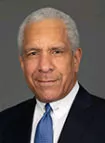At the end of 2011, the Pennsylvania Supreme Court issued two decisions of significant importance to practitioners across the Commonwealth. First, in Commonwealth v. Harris, 32 A.3d 243 (Pa. 2011), the Court departed from federal law in holding that the collateral order doctrine applies to privilege decisions. Second, in Samuel-Bassett v. Kia Motors America, Inc., 34 A.3d 1 (Pa. 2011), the Court held that a post-judgment award of attorney's fees as damages is separate from the merits portion of the case for purposes of determining whether a judgment is final and appealable.
In Harris, the Court expressly rejected the federal approach to determining the appealability of privilege decisions that was set forth in Mohawk Industries, Inc. v. Carpenter, 558 U.S. ___, 130 S. Ct. 599 (2009). In Mohawk, the defendant sought to appeal an order that it produce documents it claimed were protected by the attorney-client privilege, arguing that the privilege decision was immediately appealable as a collateral order. The U.S. Supreme Court affirmed the court of appeals' dismissal of the appeal, holding that "collateral order appeals are not necessary to ensure effective review of orders adverse to the attorney-client privilege." The Supreme Court rejected concerns that its decision would have a "chilling effect" on attorney-client privilege, explaining that the opportunity to appeal the final judgment and seek a remand for a new trial provides "sufficient relief" from an order improperly requiring disclosure of privileged material. The Court said there were alternate ways to seek appellate relief, including an interlocutory appeal by permission and a writ of mandamus, as well as the "option" to defy the disclosure order.
The Pennsylvania Supreme Court disagreed. Francis Bauer Harris had been found guilty of first-degree murder and sentenced to death. In a petition for post-conviction relief, Harris alleged that his trial counsel was ineffective for presenting testimony of a psychologist during the penalty phase of his trial who had not completed the testing that would have been required to establish a mitigating circumstance. The Commonwealth subpoenaed the psychologist to testify at a hearing and asked Harris to waive the psychologist-client privilege with respect to that testimony. Although Harris refused, the trial court allowed the testimony,causing Harris to appeal.
In its opinion, the Pennsylvania Supreme Court rejected the notion that the availability of appeal after final judgment sufficiently addresses the potential "chilling effect" of an adverse privilege decision, stating: "Once putatively privileged material is in the open, the bell has been rung, and cannot be unrung by a later appeal." The Court found the U.S. Supreme Court's additional efforts to minimize the impact of its ruling to be unavailing. Under Pennsylvania law, some claims of privilege might not qualify for interlocutory appeal by permission; a petition for mandamus is not readily available in Pennsylvania; and the option of disobeying a discovery order and facing sanctions is "so extreme as to be no option at all." In sum, the Court held that orders requiring disclosure of putatively privileged materials are immediately appealable under the collateral order doctrine. Although Harris dealt with the psychologist- patient privilege, its reasoning applies to all other types of privileges, including attorney-client.
In Samuel-Bassett, the Court held that even if an award of attorney's fees is part of recoverable damages, the award is still an "ancillary" part of the case that is to be treated separately from the rest for purposes of determining when there is a final appealable judgment. The Court in Samuel-Bassett considered a number of issues arising out of a consumer class action against Kia Motors under the Magnuson-Moss Warranty Improvement Act. A jury had found in favor of the class and awarded damages. Among the damages recoverable under the Act are counsel fees, but the trial court did not award fees as part of the judgment on the merits. After Kia appealed on the merits, the trial court awarded $4,125,000 in counsel fees and $267,513 in costs, and Kia separately appealed that order. On appeal, Kia argued that the trial court did not have jurisdiction to award the fees because Rule 1701 of the Pennsylvania Rules of Appellate Procedure provides that, after an appeal is taken, the trial court "may no longer proceed further in the matter." The Supreme Court rejected that argument.
Rule 1701(b) permits the trial court to take action "ancillary to the appeal." The Court noted that it had previously held that, for purposes of Rule 1701, a motion for attorney's fees is "ancillary" to an appeal from a judgment on the merits. Those earlier decisions dealt with fees awarded as "costs" when, for example, a party engaged in vexatious conduct, but in Samuel-Bassett, the Court held that it would extend those decisions to apply even where the fees are awarded as an element of damages. Since the plaintiffs' motion for attorney's fees was timely filed, the Court concluded that the Court of Common Pleas was empowered to act on the motion for attorney's fees even after a merits appeal had been taken.
It is increasingly common for statutes to include attorney's fees as part of a recoverable judgment, and such provisions also are found in many contracts. Under Samuel-Bassett, a party must be sure to promptly appeal from a judgment on the merits even though the part of the damages consisting of attorney's fees remains undecided. It is also necessary to separately appeal from any "ancillary" decision made after judgment on the merits in order to ensure that all appellate rights are properly preserved.
The content of this article is intended to provide a general guide to the subject matter. Specialist advice should be sought about your specific circumstances.

